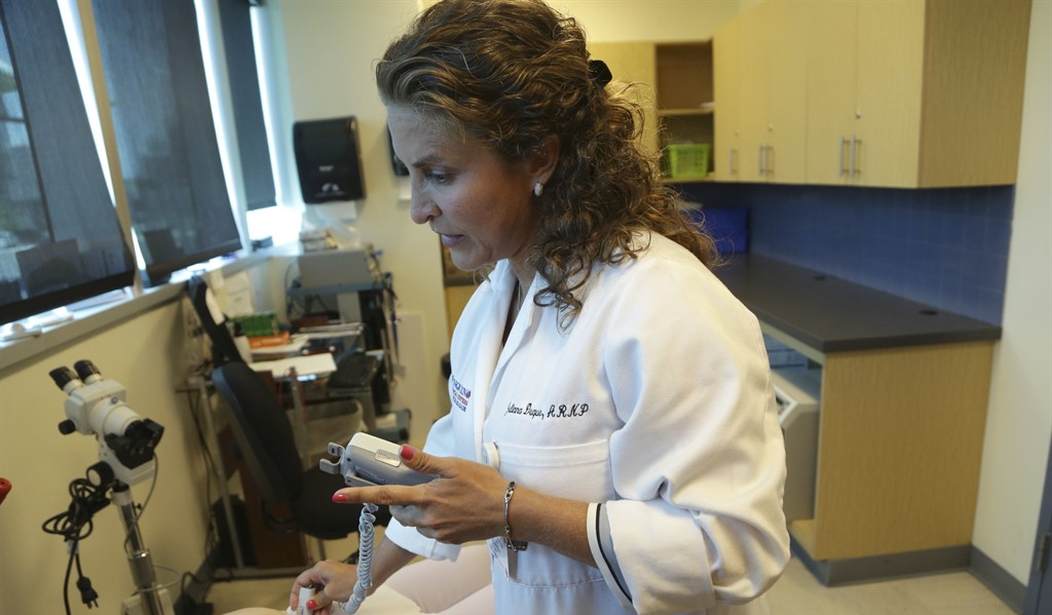While it is encouraging to see the federal government trying to save money, a recent proposal from the Centers for Medicare and Medicaid Services (CMS) has bureaucrats looking in the wrong direction. Somehow it shouldn’t surprise us, I guess, when the government takes an otherwise laudable goal and goes about it in a backward and counter-productive manner, but a recent CMS proposal threatens Americans’ ability to access the care they need. The agency needs to redirect its strategy.
The issue I’m referencing is the so-called “site neutral payments” provision. If enacted, reimbursement rates for medical procedures, regardless of the provider or where the procedure takes place, will be paid out the same. That means since an independent physician charges less for a procedure than a hospital for a treatment, both providers will now be paid the lower rate. Why is that not such a great idea?
To start with, government meddling with the marketplace of traditional medicine as practiced in this country has often had opposite results from those intended. Examples abound and one such recent debacle was the so-called “Affordable Care Act.”
The costs for hospital outpatient departments are also often higher than a doctor’s office, and for good reasons. A private physician’s office maintains normal business hours and can operate with just a room, a receptionist and a doctor. Hospitals, meanwhile, must maintain scores of employees, equipment and treatment options that must be prepared to respond to any emergency 24-hours a day. “Site neutral payments” fail to account for these additional necessary overhead costs.
This is especially true for rural hospitals, the outposts of professional medical care in large swaths of the United States. My home state of Pennsylvania, for example, has the third largest population of rural Americans in the country. Those of us who live in the more urban and suburban areas of Pennsylvania all too often forget the small towns and villages throughout the state that are served by hospitals which have to adeptly handle their finances to stay afloat. That means getting fair payments to hospitals to support their existence and to promote patient access. Knowing that a hospital is available 24/7 is a major factor.
Recommended
Since 2010, 80 rural hospitals have closed, and more than 40 percent “are operating in the red,” according to the Boston Globe. Sixteen closed last year alone and this is not just a rural issue. A map of Pennsylvania shows 65 hospitals that serve a critical need in our community and that are also in financially precarious situations. They span 36 of our 67 counties and they are the hospitals that provide more than half of the uncompensated care for the needy. Providing proper payments to ensure these hospitals stay open is critical to maintaining healthy outcomes.
Additionally rural residents, particularly the elderly who are a high proportion of patients in these areas, rely on Hospital Outpatient Departments to serve as one-stop shops to receive treatment for a multiplicity of medical needs. Independent physician offices just cannot provide these services and putting additional financial pressure on hospitals by instituting site-neutral payments may jeopardize critical access to care.
In a nod toward the problem of instituting site neutral payments, Congress enacted a law exempting existing outpatient departments from this calculation, but this has presented a whole other set of problems. These facilities cannot relocate, renovate or expand without jeopardizing their status, causing them to be outdated as soon as the bill was passed and making it harder for patients to obtain the care they need.
Where should CMS and Congress be looking to save medical care costs? The most effective change would be to expand efforts to prevent rampant Medicare and Medicaid fraud and abuse which has cost taxpayers billions of dollars.
This year DOJ and HHS launched a task force to uncover various schemes to commit Medicare and Medicaid fraud and it has already produced significant results. In April, federal prosecutors charged 24 people with perpetrating a 1.2 billion dollar Medicare scheme, one of the largest in US history. Just this September, prosecutors charged 35 people of stealing 2.1 billion dollars by engaging in Medicare fraud. For comparison purposes, site-neutral payments are only expected to save at most $1.4 billion annually over the next 10 years.
By achieving fraud prevention task force success, CMS will save money on payments without jeopardizing hospitals and will save dollars instead of pennies. Let’s aim for the fences and hit a home run instead of bunting at the wrong time. Let’s get those misspent dollars back in the Treasury instead of endangering one of the most efficient units of medical care in our system, and threatening much needed access to care in our communities.

























Join the conversation as a VIP Member